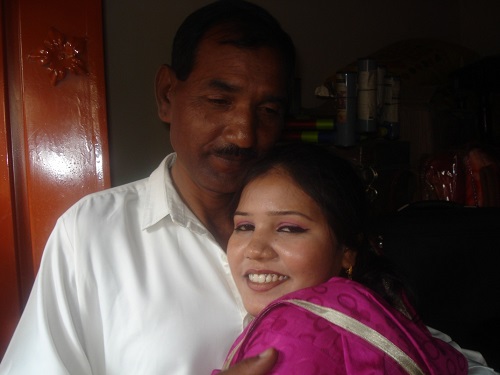As the West continues to celebrate the 12 days of Christmas which extend into the New Year, some 215 million Christians worldwide face violence or repression. On the day after Christmas, the British government launched a review of Christian persecution in “key countries” – especially in the Middle East, Asia, and Africa – and to seek ways the UK can help those who are suffering.
Christianity is on the “verge of extinction in its birthplace,” said Foreign Secretary Jeremy Hunt, who ordered the report. “So often the persecution of Christians is a telling early warning sign of the persecution of every minority.”
Bishop Philip Mounstephen, the Anglican bishop of Truro, will lead the effort to uncover “the scale of the problem” and “offer ambitious policy recommendations” to the government.
Globally, 250 Christians die for their faith each month.
“We are seeking to identify additional practical steps to help stop the appalling levels of violence that saw 3,000 Christians murdered last year because of their faith,” said Lord Tariq Ahmad, the prime minister’s special envoy on religious freedom. “I am absolutely committed to not only standing up for the persecuted, but protecting and strengthening this fundamental human right” of religious liberty.
The report is scheduled to be completed by Easter. It comes as Prime Minister Theresa May faces public backlash at refusing to grant asylum to Asia Bibi, a Pakistani woman sentenced to death for converting to Christianity. Although Pakistan’s supreme court overturned the conviction, Bibi and her family remain in hiding for fear of their lives.
Bibi put a face on the government’s seeming indifference to Christian suffering. Of the 1,112 Syrian refugees who settled in the UK in the first three months of 2018, not a single one belonged to the Christian faith. Christians made up 0.23 percent of all Syrian refugees accepted by the UK in 2017, according to the Barnabas Fund.
The government “must do more” for persecuted Christians, Hunt said this week.
In addition to government-sanctioned persecution or government-tolerated mob violence, Christians also face a loss of civil and human rights, including their right to hold certain jobs, educate their children in their religion, or own private property on equal terms with others.
Fr. Gregory Jensen has detailed how the Guatemalan government tried to undermine property rights in order to crack down on Hogar Raphael Ayau, an orphanage run by Eastern Orthodox nuns, usufruct). Property rights indivisible from religious freedom.
A report on Christian persecution conducted by the international monitoring group Open Doors confirmed that economic liberty and religious liberty are correlated. It named North Korea as the most repressive anti-Christian nation in the world. The worst offenders also have a low regard for property rights as measured by the Fraser Institute’s Economic Freedom Report, which ranks nations from one to 162.
North Korea is followed in repression by Afghanistan (unrated), Somalia (unrated), Sudan (153), Pakistan (unrated), Iraq (152), Yemen (117), Iran (130), Saudi Arabia (102), Egypt (147), Nigeria (118), Libya (161), and India (95).
Meanwhile, in China (ranked 105 by Fraser), police raided evangelical house churches on Christmas Eve to prevent Christians from holding Christmas services; the city of Langfang barred all residents from any kind of Christmas display; and the Communist Party’s disciplinary arm likened celebrating Christmas to “spiritual opium.”
Rick Plasterer at Juicy Ecumenism warns that China’s totalitarian social credit scheme has dire implications for religious freedom in the world’s most populace nation. Thankfully, the West has been spared this fate in part due to physical money:
Western societies are far removed from the personal, status-based, ideological allocation of resources practiced or planned in China and North Korea. The availability of resources is instead based on highly impersonal money, which can be used by anyone who has money to spend.
“Money,” wrote Fyodor Dostoyevsky, “is coined liberty.”
Totalitarians fear religion, especially Christianity which teaches “that there is another King, one Jesus” (Acts 17:7). Similarly, they hate the free market, which gives its would-be slaves the resources and autonomy to live for their own ends rather than those decreed by the ruler.
The UK government, and all Christians, must recognize the inherent link between freedom of conscience and the right to own property in a free economy.
(Photo credit: Pictured, Asia Bibi with her husband, Ashiq Masih, in 2013. HazteOir.org. CC BY-SA 2.0.)
